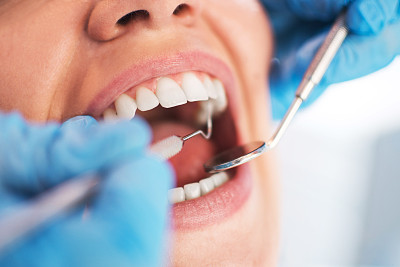Summary: Dental implant procedures can significantly enhance oral health and aesthetics, but achieving a safe and successful outcome requires strict adherence to essential guidelines and precautions. This article elaborates on four critical aspects: pre-operative preparation, surgical techniques, post-operative care, and patient follow-up. Each section provides an in-depth exploration of best practices and common mistakes to avoid, ensuring that patients are well-informed and prepared for their dental implant journey. Understanding and implementing these guidelines can minimize risks and enhance the likelihood of a successful implant procedure, leading to lasting benefits for overall health.
1. Pre-operative Preparation Essentials

Before undergoing a dental implant procedure, proper pre-operative preparation is crucial. This stage involves a comprehensive evaluation of the patients oral and overall health. The dentist will review medical history, conduct examinations, and may require imaging tests to assess the jawbones condition and suitability for implant placement. Patients are encouraged to discuss any ongoing medical conditions or medications that may affect the procedure.
Another important aspect of pre-operative preparation is the need for dental cleaning. Ensuring that the mouth is free from infection and plaque can reduce the risk of complications during and after the procedure. Patients should also be informed about the process, including the estimated timeline and what to expect on the day of surgery, allowing them to mentally prepare for the experience.
Finally, it is imperative to establish a plan for anesthesia during the procedure. Patients should discuss their preferences and any concerns regarding sedation options with the dental professional. A clear understanding of the type and administration of anesthesia can alleviate anxiety and contribute to a smoother surgical experience.
2. Surgical Techniques for Optimal Results
The surgical phase of the dental implant procedure is where precision and technique come into play. The dentist must assess the dimensions of the implant site accurately and utilize the right tools for the task. Techniques such as flapless surgery can minimize tissue trauma and accelerate recovery for eligible patients.
Additionally, it is important for the dental practitioner to adhere to strict sterilization protocols to avoid infections. This encompasses not only the surgical instruments but also the working environment and staff hygiene practices. Proper sterilization significantly reduces the risks associated with surgery.
Giving attention to the tactical placement of the implants is also vital. Implants should be positioned in a way that aligns with the overall bite and aesthetics, ensuring durability and functionality. The use of guided surgery can assist in achieving optimal placement and may lead to improved outcomes for patients.
3. Post-operative Care and Recovery Strategies
Post-operative care plays a crucial role in the healing process following a dental implant surgery. Patients should receive detailed instructions on how to manage pain, swelling, and discomfort. Ice packs or prescribed medications may be recommended to help control inflammation during the first few days after the procedure.
Oral hygiene must also be maintained to promote healing. Patients must be advised on gentle cleaning techniques that avoid the surgical area while ensuring oral cleanliness. The dentist may recommend specific products or methods to facilitate effective hygiene during recovery.
Furthermore, dietary adjustments are necessary post-surgery. Patients should stick to soft foods and avoid hard or chewy items that could jeopardize the implant site. Proper nutrition supports healing, and it’s important to stay hydrated and include healthy foods rich in vitamins and minerals.
4. Importance of Patient Follow-up Appointments
Scheduled follow-up appointments are essential for monitoring the healing process after the dental implant surgery. These visits allow the dentist to assess the integration of the implant with the bone and identify any potential complications early on. Regular check-ups are vital for the overall success of the implant and should not be overlooked.
During follow-up visits, the dentist will also evaluate the patients oral hygiene practices and reinforce the importance of care routines. It serves as an opportunity to address any concerns the patient may have and to provide additional guidance tailored to the individuals healing progress.
Ultimately, patient education does not stop after the initial procedure. Patients should be informed about the long-term care of dental implants, including routine dental visits and lifestyle choices that can affect implant longevity, ensuring they remain engaged in their oral health journey.
Summary:
In conclusion, adhering to essential guidelines and precautions for a dental implant procedure can greatly enhance the chances of a successful outcome. From thorough pre-operative evaluations to precise surgical techniques, conscientious post-operative care, and regular follow-ups, each step is integral to achieving the desired results. Patients who understand these components and actively participate in their care are more likely to experience satisfaction and health from their dental implants.
This article is compiled by Vickong Dental and the content is for reference only.
Vickong Dental
Vickong Dental is a large medical group established in Hong Kong in 2008 by professors from well-known medical universities in Guangdong and Hong Kong, as well as medical doctors from key national '985' universities (including Master's supervisors and senior professors). The chain of branches brings together expert dentists with PhDs and Master's degrees from Hong Kong and Mainland China, committed to providing high-quality dental treatment.
"Vickong Dental Practices the University Motto of 'Healing and Serving Society,' with a Stable Operation for Sixteen Years. It Has Been honored with Hong Kong Enterprise Leaders's Choice,' and is a Global Trusted Implant Center for the Nobel Implant System. Recommended by Hong Kong Metro Broadcast and Guangdong Television, it Serves Customers from Over Thirty Countries and Regions, Gaining the Trust and Favor of Citizens from the Guangdong-Hong Kong-Macau Greater Bay Area and Surrounding Cities.

Thousands of customers' unanimous praise
The most recognized and highly recommended dental service by customers in the Guangdong-Hong Kong-Macau Greater Bay Area
We Ensure You Receive Detailed Care and Attention Here
Hong Kong standards, Shenzhen prices, Your Trusted English-speaking dentists

Vickong Dental Medical-Grade Instrument Disinfection Process
Vickong Dental Medical-Grade Instrument Disinfection Process

Vickong Dental Chain: A Warm and Comfortable Environment for Treatment






Appointment Hours

Q&A
Why choose Vickong Dental?
Vickong Dental practices the university motto 「Medicine to Benefit Society」, with each branch bringing together highly qualified dentists with doctoral and master’s degrees from Hong Kong and the Mainland, and has maintained seventeen years of steady operation。Recipient of 「2024 Hong Kong Enterprise Leaders Brand」, 「2025 Hong Kong Enterprise Leaders Brand」, a Nobel Biocare Global Trusted Implant Center, and a brand recommended by Metro Radio Hong Kong and Guangdong TV。
To date, we have served customers from more than thirty countries and regions,earning exceptionally high word-of-mouth recognition and trusted recommendations from residents across the Guangdong-Hong Kong-Macao Greater Bay Area and surrounding cities
We have eight major branches in Zhuhai、Shenzhen,and a consultation and service assurance center in Hong Kong,so you can book a free consultation at any time for any questions,which is very reassuring.
If I do not accept the quotation after the CT scan, will I be charged??
No! As long as the actual treatment has not started, you will not be charged any fees.
Will there be any additional charges during the treatment process?
No, there won’t be any additional charges. Before treatment begins, we will clearly explain the treatment plan and its corresponding fees. Only after the patient agrees and signs the consent form will we proceed with the dental service.
Can I pay in Hong Kong dollars?
Yes. Vickong Dental accepts payment in Hong Kong dollars. The amount will be converted based on the exchange rate of the day, and the applicable rate will be clearly communicated to you in advance.
Can I reschedule my appointment at any time?
Yes. Please contact us via **WeChat** or **WhatsApp** as early as possible, providing your original appointment time and details, along with your preferred new date and time slot for rescheduling.













